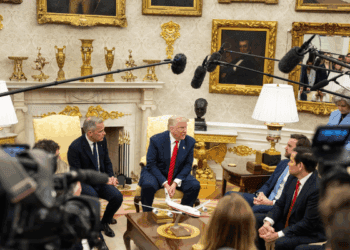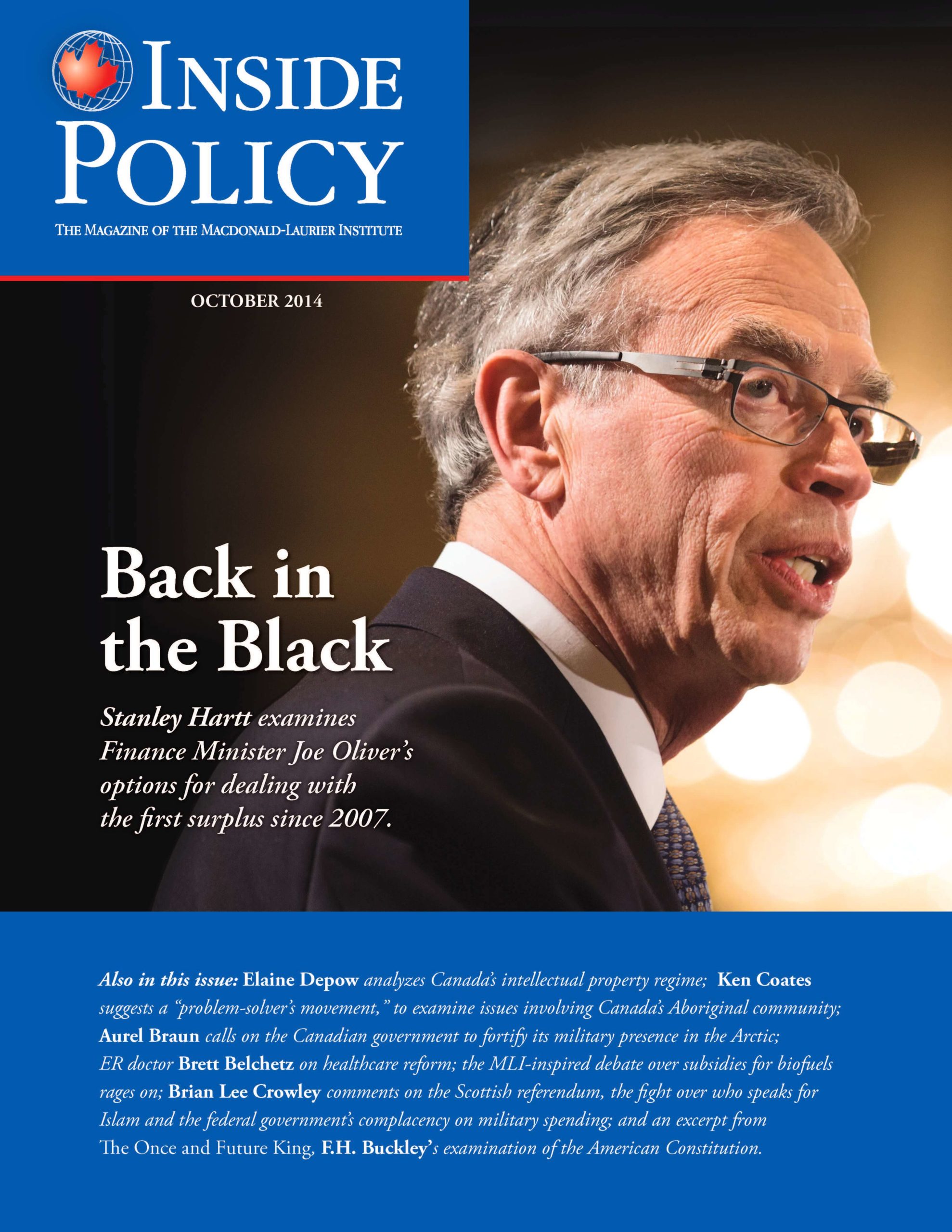Writing in the Globe and Mail, Macdonald-Laurier Institute Managing Director Brian Lee Crowley argues that companies like search engine giant Google may be dominant but by no means own a monopoly over their area of business.
“Real monopolies are ones where privileged suppliers are insulated from competition, technological change and consumer preferences”, writes Crowley.
By Brian Lee Crowley, Oct. 2, 2014
Confucius once said when words lose their meaning, people lose their liberty. George Orwell mined this rich idea in both Animal Farm and Nineteen Eighty-Four, showing how political authorities crave to redefine inconvenient words, making them tools of ideology rather than enemies of obfuscation.
So when valuable words are misused, we have a responsibility to rebel. One such word is “monopoly.” In a classic case, Paypal co-founder Peter Thiel recently claimed that search-engine giant Google enjoys a monopoly in the internet search business because it has not faced any serious competition since 2002. Competitors like Yahoo! and Microsoft’s Bing complain it is hard to make inroads against Google’s dominance.
I mention Microsoft because of the irony that the firm complaining today was itself the target of numerous legal challenges in the 1990s because its dominance of the operating system market. Similarly IBM was repeatedly targeted by regulators and courts in an earlier era for its dominance of the computer industry.
In all these cases, the companies were frequently referred to as “monopolists” whose “monopoly power” needed to be whittled down to size. This was not true of Microsoft nor IBM and is not true of Google.
It is wrong for an obvious reason: monopolists by definition are the only game in town. The absence of alternative suppliers is a key part of the definition of monopoly, and in all these cases the companies in question faced lots of competitors.
Take Google. According to US internet data firm comScore, in April of this year “69.0 percent of [US] searches carried organic search results from Google…while 26.6 percent of searches were powered by Bing.”
The fact that the competitors weren’t as big as Google or IBM or Microsoft is not in itself evidence of their having done something wrong. On the contrary, as Google correctly observes, its competitors are only a click away. If Google doesn’t provide value, the barriers to shifting to an alternative supplier are risible.
Remember that Google was born a mere 16 years ago while founders Larry Page and Sergey Brin were working out of the proverbial friend’s garage. As one observer notes, “Google’s combination of clever algorithms, advanced search operators and sophisticated ad programs like AdWords quickly propelled it to the top of the search engine market.”
In other words it was the value that Google created for consumers, despite the existence of competitive alternatives, that powered its rise. This is the very opposite of monopoly, which is not a synonym for “companies that got big because consumers really like what they do.” It is this that Google has accomplished, as did Microsoft and IBM before them.
This idea of barriers to entry is also key in assessing whether monopoly exists. To compete in the landline telephone business, the upfront capital cost to make your phone connect with every other phone is huge. Ditto if you want to supply natural gas, electricity, rail or a few other such services. On the other hand, technology increasingly provides alternatives, such as mobile telephony.
In information technology the barriers to entry are tiny. Just ask Blackberry, which went from dominance in the smartphone industry to also-ran in the blink of an eye because it failed to keep up with industry trends, driven by consumers hungry for what alternative suppliers offered.
Who rails today against Microsoft’s “monopoly” in operating systems? Answering this question gives us insight into another part of understanding what really constitutes “monopoly”. In an open market without insuperable barriers to entry, even a single dominant supplier does not enjoy monopoly power, in the sense of the power to charge what it likes for its services while preventing the emergence of competitors.
Indeed the existence of a dominant and highly profitable supplier is a huge blinking billboard signalling a rich opportunity. Every David with the equivalent of a garage and some programming skills rightly sets his sights on getting a piece of the action and cutting Goliath down to size. This threat alone keeps dominant suppliers from charging whatever they want.
Technological change is the chief reason why the brilliant economist Joseph Schumpeter (of “creative destruction” fame) thought anti-trust cases a monumental waste of time. The moment of dominance enjoyed by one company is necessarily rendered fleeting by market incentives and technology’s effervescence.
Real monopolies are ones where privileged suppliers are insulated from competition, technological change and consumer preferences. Sounds like government-protected industries such as health care, taxis, broadcasting, supply management and the mail. Despite having the punitive power of the state at their back, falling barriers to entry and technological change will get them too. Time is on our side.
Brian Lee Crowley (twitter.com/brianleecrowley) is the Managing Director of the Macdonald-Laurier Institute, an independent non-partisan public policy think tank in Ottawa: www.macdonaldlaurier.ca.





